Reviewed: “A Bold Fresh Piece of Humanity” by Bill O’ Reilly (Broadway, 2008).
In this slight, self-indulgent memoir, Bill O’Reilly tells us how he got so “bold” and “fresh.” A humble man, he attributes his success to his own innate greatness, with honorable mention going to his solidly rock-headed upbringing in Levittown, N.Y. For all his generous praise of Levittown, O’Reilly is very clear that most of the credit should go to himself: “Looking back, the reason I have succeeded in life is that I relied on myself.”
This typical piece of self-congratulation comes in a bizarre 10-page digression about Hurricane Katrina, in which O’Reilly contrasts his bold, fresh childhood in Levittown 50 years ago with the disastrous government-dependency of those New Orleans residents who spoiled Bush’s presidency by getting themselves drowned: “If I had lived in New Orleans, I would have gotten in my car and driven the hell out of there as soon as the national weather service gave warning.” In case the reader missed the point, Bill says that the dead in New Orleans were “either too dumb, too lazy, too mentally challenged, or too unlucky to have provided themselves with basic protections.”
Stupid and callous as that may sound, it’s the sort of proclamation that helped O’Reilly “succeed in life.” In fact, this sort of non sequitur is the most powerful rhetorical device in O’Reilly’s part of the ideological spectrum. O’Reilly’s real function is to say out loud, on television, this sort of thing — and get away with it. His fans don’t argue; they hate argument or discussion on principle. They simply glory in the fact that O’Reilly and Rush Limbaugh have found a way to blurt out their long-nursed spite on national TV and get away with it — in fact, “succeed in life” by doing it. So, the raw boasting that characterizes this book is something that O’Reilly’s nameless fans can share, knowing that O’Reilly’s success, such as it is, represents the fact that their long-choked spite has at last found its voice.
O’Reilly’s notorious catchphrase, “Shut up!” isn’t by any means a mere eruption of bad temper; it’s his ideology. His version of conservatism, which he calls “traditionalism,” emphasizes silent obedience. He proudly recalls learning the habit of not discussing important matters as a child: “My folks knew what was happening in the world, but did not feel compelled to comment.”
The traditionalist view is simple dualism, as O’Reilly explains it: “You either fight active evil, or you accept it.” Of course, without the possibility of real discussion, you might wonder how the traditionalist decides whether a particular cultural phenomenon is evil. O’Reilly’s view is, again, proudly rock-headed: “My view of evil, like just about everything else about me, is simple and straightforward.” To demonstrate that distinguishing good from evil is actually a piece of cake, O’Reilly offers the reader examples from five current controversies. The most interesting question in the O’Reilly Catechism is No. 4: “Terrorists around the world are responsible for killing and injuring thousands of human beings. Are all terrorists evil?”
What makes this question interesting is that in another chapter of his memoir, O’Reilly boasts (and it is a boast) that he worked in El Salvador in 1981. That was a very bloody year in El Salvador, and much of the blood was spilled by U.S.-trained-and-sponsored units of the Salvadoran army. Many of the liberal quibblers O’Reilly deplores said that those massacres made America complicit in terrorist violence.
In this context, it’s surprising to find O’Reilly actually bragging that he went on assignment to the scene of the most notorious of these massacres: “When the CBS News bureau chief asked for volunteers to check out an alleged massacre in the dangerous Morazan Territory, a mountainous region bordering Nicaragua, I willingly went.”
This story is a brief aside in O’Reilly’s long account of all the brave things he’s done in his life. El Salvador gets a couple of paragraphs, whereas his story about quarterbacking the second-string football team against the first-stringers gets four pages of tedious detail. In O’Reilly’s picture of the world, that “alleged” massacre is nothing but a bar boast, another claim to alpha-male status.
Unfortunately, this was no “alleged” massacre. This was the El Mozote massacre, one of the most horrific slaughters of civilians in this hemisphere. For three days in December 1981, the U.S.-trained Atlcalatl Battalion of the El Salvadoran army surrounded the village of El Mozote and its surrounding hamlets, and raped, tortured and killed at least 1,000 villagers suspected of sympathy for the Marxist FMLN.
If O’Reilly really went to El Mozote after the massacre, he saw not an “alleged” abuse but raw “evil,” if that term has any meaning at all. O’Reilly helpfully supplies a definition of evil in his catechism on terrorism: “murdering innocent women and children is the most cowardly act on earth.” Of those killed at El Mozote by American proxies, the vast majority were women and children. Mark Danner’s detailed account of the slaughter in the New Yorkerdescribes the moment when some soldiers balked, briefly, at the prospect of killing all the children:
“Well, we’ve killed all the old men and women,” one [soldier] said. “But there’s still a lot of kids down there. You know, a lot of those kids are really good-looking, really cute. I wouldn’t want to kill all of them. Maybe we can keep some of them, you know — take them with us.”
“What are you talking about?” another soldier answered roughly. “We have to finish everyone; you know that. That’s the colonel’s order. This is anoperativo de tierra arrasada here” — a scorched-earth operation — “and we have to kill the kids as well, or we’ll get it ourselves.”
“Listen, I don’t want to kill kids,” the first soldier said.
“Look,” another said. “We have orders to finish everyone, and we have to complete our orders. That’s it.”
At about this time, up on the hill known as El Pinalito, Capt. Salazar was shrugging off a guide’s timid pleafor the children’s lives. “If we don’t kill them now,” he said angrily, “they’ll just grow up to be guerrillas. We have to take care of the job now.”
By any standards, even O’Reilly’s, this was pure evil. O’Reilly was there. He saw it face to face. And it made no impression on him at all, for the childish, contemptible reason that this particular slaughter of women and children was committed by people on the team he happened to support. So much for the O’Reilly theory of morality. He has none, and more importantly, he doesn’t want to know.
The “alleged” massacre at El Mozote: O’Reilly Sees No Evil Here
That’s the key to O’Reilly and his audience: they don’t want to know, they don’t want to argue, they want you to shut up: “We in America waste far too much time endlessly discussing stupid stuff.” When these people meet something new, they run away like the sullen cowards they are. That’s the simple story of the biggest cultural collision in O’Reilly’s life: the Levittown boy fascist running head-on into the ’60s. O’Reilly, born in 1949, was of the generation that came of age during the most intense point of the hippie era. I was curious about how he would handle this part of his life, because I’ve always wondered what right-wingers did during the ’60s. How did a young authoritarian dweeb like Ken Starr cope with the spectacle of Woodstock? What did the young Rush Limbaugh do after Kent State? Where was Tom Clancy during Watergate?
O’Reilly’s memoir offers one important answer to this question: many of them, including O’Reilly himself, hunkered down in small Catholic colleges in the East and Midwest. O’Reilly went to Marist College, where, he boasts, “even as the liberated late ’60s blew across campus, I still went to church.” O’Reilly says with pride that he followed his father’s advice on navigating those dangerous waters: “Stick with Elvis.” They learned nothing, tried nothing, went into estivation like the mud turtles they are. They didn’t argue, they endured and waited for the right moment to wriggle up to the surface again.
O’Reilly Sporting A 70s Tom Hanks Hairdo
O’Reilly used his “bold, fresh” personality to wangle a job with CBS, quit in a dispute over uncredited news footage, and worked out his frustrations by writing a novel, Those Who Trespass, in which a wronged TV reporter with a “bold, fresh” personality not unlike Bill’s murders all the network bigwigs who have gotten in his way. Again we see O’Reilly’s trademark mental habits: a preference for simple, direct action over “stupid” discussion, and a remarkably flexible definition of “evil” when it involves extreme violence.
When Roger Ailes was putting together his new Fox Network, he was smart enough to know how many sullen-majority types out there were desperate for a bold, fresh voice articulating their spite, and O’Reilly was on his way to stardom.
Of the many unpleasant aspects of this story, the one I found most personally distasteful was the way O’Reilly splashes vast quantities of corny Irish-American schmaltz over ever boastful anecdote. Even his title is Ould Sod kitsch; it seems a nun charged with teaching the young know-nothing O’Reilly called him “a bold fresh piece of humanity.” The exaggeratedly Irish diction is basic here, all of a piece with the dust-jacket photo showing little Bill in his First Communion pose.
Every American ethnic group cherishes a kitschy caricature of itself, and O’Reilly is not the sort of squeamish aesthete to balk at such cheap ingredients when it’s time to cough up another book. The only consolation I could find, wincing at every sentimental story here, is the thought of another media player raised in the New York Irish-Catholic tradition who set a far better example of moralizing: Bill Maher paying a huge price for saying, after 9/11, that the hijackers, whatever else they were, were not “cowards.” That’s Irish Catholic moralism at its best: quixotic, personally disastrous, unpopular, rigorous, and undeniably true. If we must embrace some version of these lame ethnic stereotypes, I’ll take Maher’s any day as an example of what a “no spin zone” should look like.
This review first appeared in Alternet.org. Buy John Dolan’s novel “Pleasant Hell” (Capricorn Press).
Read more: Bill Maher, Bill O'Reilly, Catholic, hippie, Irish, Tom Clancy, John Dolan, Books, Fatwah


Got something to say to us? Then send us a letter.
Want us to stick around? Donate to The eXiled.
Twitter twerps can follow us at twitter.com/exiledonline




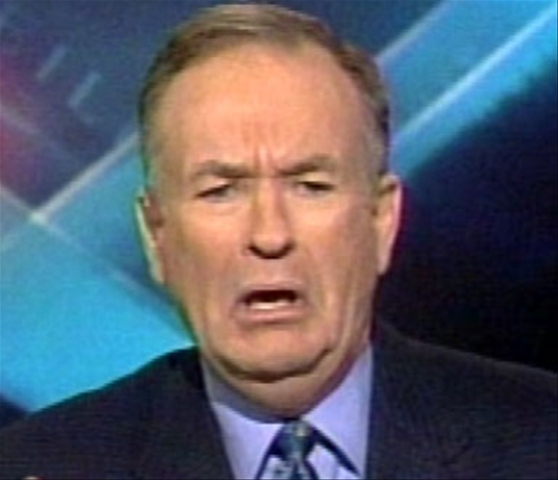

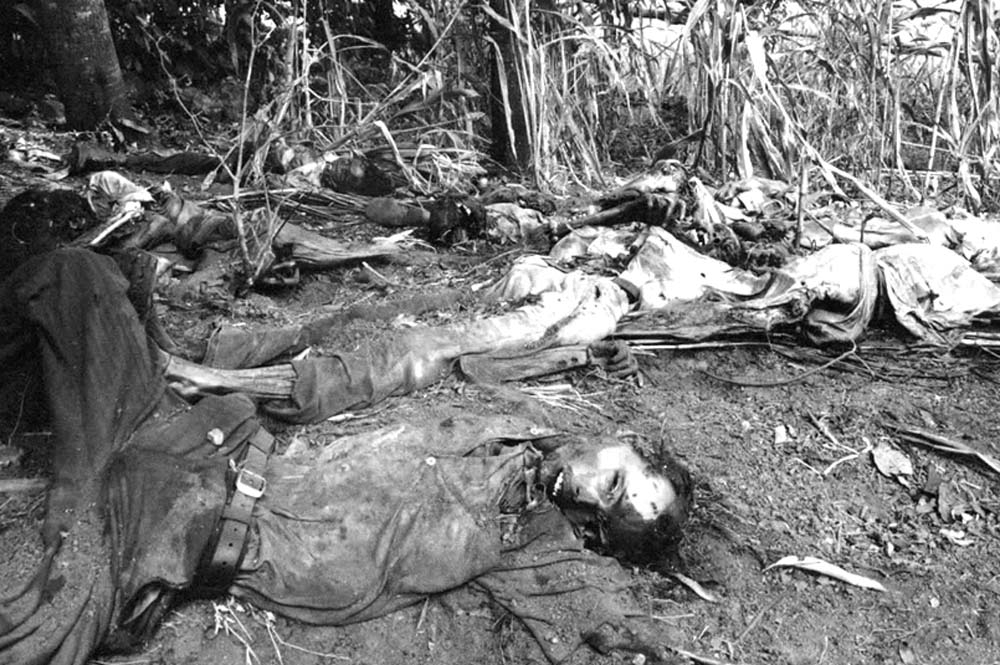
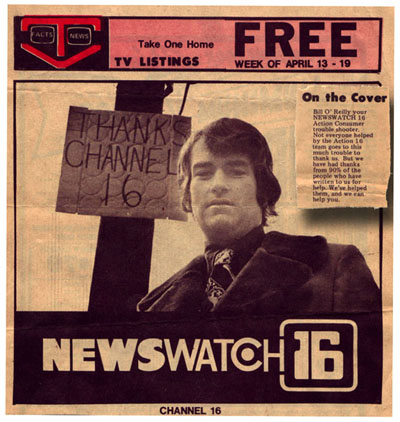
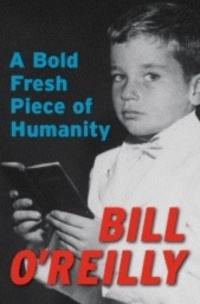
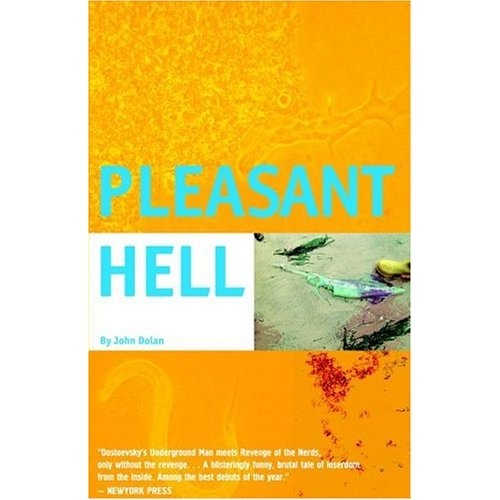

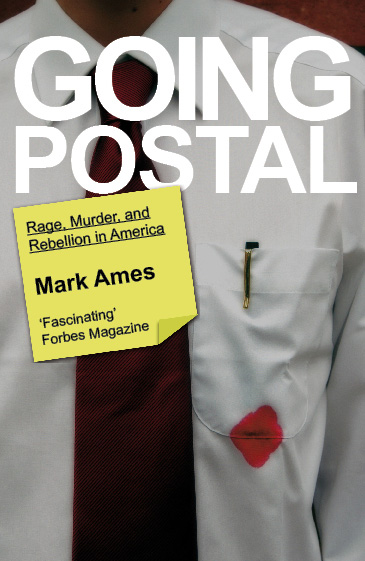









11 Comments
Add your own1. pge | December 31st, 2008 at 5:18 pm
the alpha male persona, or its affectation, is a more powerful force than cognitive dissonance.
I am watching Religulous (2008), staring Bill Maher on bestdocumentaries. The religious satire is unstoppable.
2. Raad | January 1st, 2009 at 9:01 am
Good stuff, are you going to continue the Obama crawl thing as well?
3. sergeant_howie | January 1st, 2009 at 7:15 pm
You’re at your best with this kind of stuff John.
4. rick | January 1st, 2009 at 10:03 pm
The “Pot Planet” review is something I’ve read, numerically, more than any other essay. This essay is good, but it’s probably not up there with the best of your essays. In consolation, and shit, is it consolation, age doesn’t seem to fuck with essaying skills. It’s enough to make a person want to keep living. The old are the most skilled in essaying, unlike, say, writing songs, and writing pretty much anything else. Nonfiction essayists come out of nowhere…which is cool, considering how talent is squandered. I mean it’s weird John Dolan is in his mid-fifties and on the cutting edge.
5. KoWT | January 2nd, 2009 at 7:41 pm
“Irish Catholic moralism at its best: quixotic, personally disastrous, unpopular, rigorous, and undeniably true.” Love it! Warms my heart…
6. Raad | January 4th, 2009 at 12:16 pm
I don’t like religulous, it’s too fucked up, he keeps making fun of people who aren’t the crazed bible/quran thumpers that should be getting it. The religious people that were shown in the first 15mins seemed like decent folk. Stopped watching there.
7. goat_farmers_of_the_CIA | January 4th, 2009 at 3:57 pm
This is not good, Dr. Dolan: O’Reilly is beneath contempt – he deserves absolute indifference. Only members of the bovine race and enthusiasts of intellectual and aesthetic (take a look at the cover!) S & M, or academics with an interest on communication theory would bother with his pestilent excrement of a TV show. If not indifference, I propose giving this reptile (with apologies to members of that august race) the treatment favored by Pinochet’s goons: fly him 100 miles from Valparaiso west into the South Pacific, at 30,000 feet, then kick him naked into the void. I doubt even the most hungry carrion fish will dare touch the Million Little Pieces that remain of him after he hits the drink at (hopefully) supersonic speed.
8. sergeant_howie | January 6th, 2009 at 2:17 pm
Thought occurred to me – I got The World At War boxed set for Christmas and watched it all in about two days. They had old newsreel of the guys who plotted against Hitler in ’44 – and were screamed at by Nazi judge Roland Freisler in a showtrial…
“Freisler was particularly known for humiliating defendants and shouting loudly at them. A number of the trials for defendants in the July 20 Plot before the People’s Court were filmed and recorded. In the 1944 trial against Ulrich Wilhelm Graf Schwerin von Schwanenfeld, for example, Freisler shouted so loudly that the technicians who were filming the proceeding had major problems making the defendant’s words audible.”
How like him this fuck seems. People are shit scared of America now, I think. I know I am. I used to see America as an ally. In those days we were facing down the commies together. Now American seems to stand alone as the craziest rich place on Earth. Way too many crazy people. With nukes. And Jehova. How could so many Americans vote for a guy who had Sarah Palin as a Vice? Aren’t people…
just
fucking
amazed?
9. five to one | January 8th, 2009 at 9:32 am
John Dolan at his best. This is the cutting edge.
Keep the exposing the horseshit
10. Surface2Air | January 13th, 2009 at 1:58 pm
I love the part about the El Mozote massacre. Nearly pissed my chinos. Since when did this pudgy coward start caring about innocent civilians, children even? I don’t what I find harder to swallow: O’Reilly’s bombast or Dolan’s smug superiority.
Note one of Dolan’t better reviews.
11. internet anti-Zionists | January 18th, 2009 at 6:20 pm
John Dolan is such a good writer he even manages to distinguish himself in what is perhaps the most common snark sport in the English language, dumping righteous hate on Bill O’Reilly’s head. We’ll do it live!
Leave a Comment
(Open to all. Comments can and will be censored at whim and without warning.)
Subscribe to the comments via RSS Feed